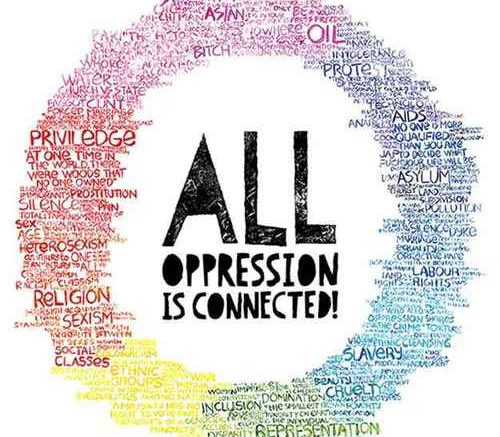What is intersectionality?
Put simply, it is a feminist sociological theory that centers around analyzing and discussing how oppression often intersects, creating unique and varied experiences of discrimination. It was originally created by a black feminist Kimberlé Crenshaw to refer to the discrimination faced by black women. This discrimination is not only sexism and racism but an experience in which many identities interact to create an entirely new identity. This identity is different to the ones that make it up. Intersectionality has since been expanded to include different social and cultural groups. Essentially, any groups not favored in the patriarchal, white society of today.
What does this have to with feminism and being a woman?
So why must we be concerned about intersectionality? Well, it turns out it can do a lot to ensure justice and equality in the feminist movement. This is especially important as not all women face the same issues. For example, a white woman won’t experience the same problems as a black woman. Forces of oppression act differently on different groups of women and also intersect differently. Ignoring intersectionality means we ignore the specific problems affecting minority groups of women and it means we gloss over these problems and create a paper feminism that doesn’t work for every woman. Women of color, different sexualities, class backgrounds etc. are ignored. Subsequently, analyzing the different oppressive forces allows us to address these specific issues and make sure problems are solved for every woman. Not just for the more privileged. Intersectionality means equality.
As a result, intersectionality is important because it means more women see the problems others face. It allows us to help our sisters. To give them a platform on which they can speak. Feminism should be inclusive for all women regardless of orientation, race, social background etc. Being a woman is much more than genitalia. Intersectionality helps to examine the multiple factors that make up each woman and the problems faced. By knowing what problems different women face, we can be more understanding. We can tailor our support and practical actions. We can take action to rewrite a system that produces worse outcomes for women of color.
What can youth do?
Consequently, it follows that youth have an even more crucial role in this movement. Discrediting intersectionality and in-fighting wastes time. Youth should instead take this theory and apply it. By using it to understand others we can bring feminism closer – make it more inclusive, not exclusive. Feminism is not taken seriously without unification and acceptance to a certain degree. It results in sidelining and women’s rights taking the hit with marginalized groups seeing no change.
By starting now, young women can work to make a real change. We can work to create a new fairer system for everyone. We can teach our children that not all women are the same but all women deserve the same respect and rights. Education is the key to creating a new society and youth can work to change the minds of many generations. Being inclusive means that all women and girls in the future will have their voices included and can work towards bigger goals.
About the Author

Jasmine Khatri is an International Relations student at the University of Birmingham. She is aiming to work to champion women’s rights across the globe and make a positive, practical change. She is passionate about creating awareness of issues like gender stereotypes and in her free time enjoys watching films.
Picture credit The Odyssey Online
